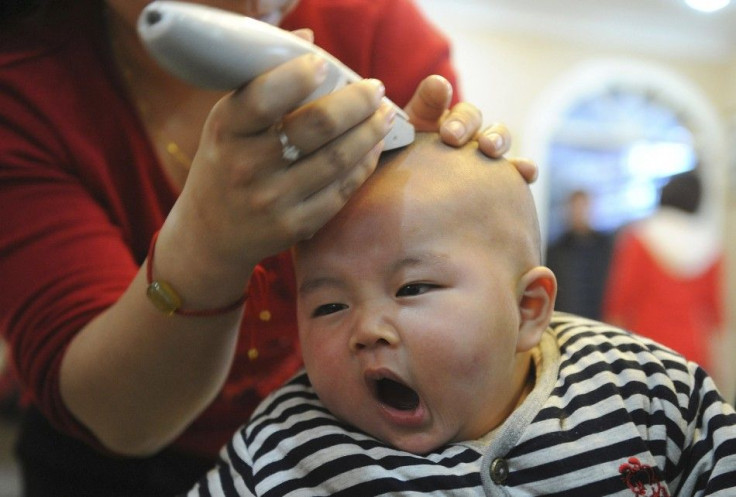China Authorities Plan Expansion Of Baby Abandonment Facilities Across Country

Chinese authorities have announced their decision to expand a pilot program of “baby hatches,” which are public places where parents can safely abandon unwanted infants. After seeing a significant response from communities that had those already in operation, the government put in motion plans for additional posts.
According to the BBC, China currently has 25 hatches sprinkled throughout the country, but plans hope to include at a minimum of an additional two facilities in each province by the end of the year. The facilities are equipped with baby incubators, which increases the chances of the baby surviving abandonment. For the most part, the babies left behind are suffering from a serious illness or were born with disabilities.
A delayed alarm system allows parents to leave their children anonymously. Parents place the child in the hatch and press an alarm button, which will set off an alert in 5 to 10 minutes, leaving enough time for parents to leave to avoid being identified.
The initial opening of such facilities, which began in 2011 when the first one opened in the city of Shijiazhuang in Hebei province, were met with criticism, with many worrying that the ability to abandon their children allowed parents to evade personal responsibility and the consequences that come with having children. Additionally, because abandoning children is also against the law, another concern is confusion over the legality of abandoning infants.
However, the overwhelming response in some locations shows that having the option can help save the life of a child, or give them a chance at a better life as opposed to being abandoned on the street. In unsafe conditions, authorities estimated that only one in three babies would survive abandonment. According to state-run Xinhua News Agency, the China Center for Children’s Welfare and Adoption reported that one location, in the southern city of Guangzhou, received 79 babies in its first 15 days.
“Laws emphasize prevention,” the head of the welfare and adoption center, Li Bo, said in the Xinhua report, “while baby hatches focus on rescue after the laws are broken.”
In the past, abandoned babies were predominantly female, as a result of decades of family-planning policies. China’s One Child Policy mandated that urban couples could only have one child, and because of cultural reasons, boys were preferred. As a result, female infants were either illegally given up, or in the worst cases, killed at birth.
As the One Child policy undergoes changes and so does China’s stigma on women, the gender ratio of abandoned babies has become more evenly distributed. Health officials say that abandoned children are from both sexes, often with severe health problems because families fear not being able to shoulder expensive medical treatments.
© Copyright IBTimes 2025. All rights reserved.






















